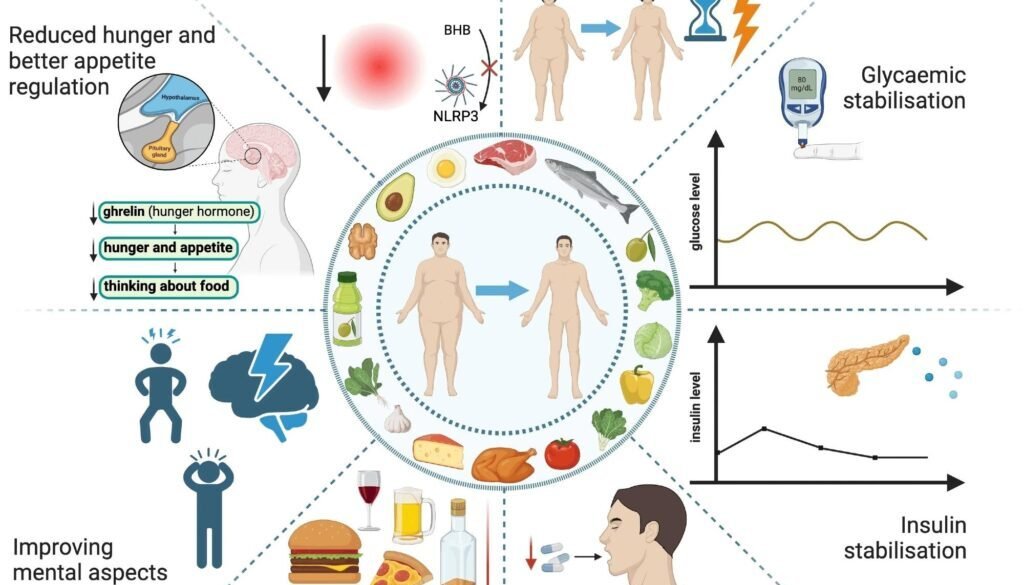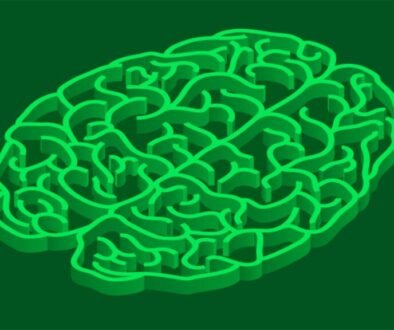Could an keto diet replace diabetes drugs? The new research explores the possibilities
[ad_1]
Could an ketogenic diet help you lose weight and abandon drug drugs? New research reveals how the cutting of carbohydrates can also mitigate inflammation and stimulate mental health – but experts say that more trials are necessary.
 Review: ketogenic diets for body weight loss: a comparison with other diets
Review: ketogenic diets for body weight loss: a comparison with other diets
In a recent review article published in the review NutrientsResearchers have examined the existing literature to assess the advantages of ketogenic diets (KD) compared to other food loss and other health -loss approaches.
Their results indicate that KD can be effective in hunger control, faster weight loss, improving insulin regulation and blood sugar, reduced inflammation and increased mental well-being, among others. These regimes could also reduce dependence on obesity drugs and could surpass not only low -fat diets but also other low -carbohydrate diets in blood sugar management and insulin levels. However, additional research, in particular clinical trials, is necessary to establish these advantages.
Approach obesity with KD
Obesity is an increasing but often overlooked public health problem in the world, despite the food guidelines and recommendations. Patients and clinicians are turning more and more towards food strategies such as KD, originally developed to treat epilepsy, for weight loss.
These diets require consuming a few or no carbohydrates (less than 10% of its daily energy intake), moderate quantities of protein and high quantities of fat. The restriction of carbohydrates force the body to ketosis, where instead of burning glucose for energy, it burns fat instead. When the body is in ketosis, insulin levels also fall.
Despite proof that KD leads to rapid weight loss, reports note that it is not strongly classified in terms of global diet quality. This is due in part to poorly formulated KDs that are based on low -carbohydrates and can undermine the benefits of the diet or have harmful long -term health effects. However, there are healthier varieties of KD KD which focuses on natural foods and minimum transformation.
KD for weight loss and associated advantages
Traditional regimes, which are based on the restriction of calories, cause weight loss but also increase hunger. People following these regimes find it difficult to adhere to them in the long term, as they may want foods rich in calories but not very nutritious.
On the other hand, KD removes hunger hormone from the Ghrelin and increases the release of satiety hormones. These effects are believed to be mediated in part through ketone, such as β-hydroxybutyrate (BHB), which influence hormones regulating appetite and can contribute to the reduced sense of hunger. A study in which individuals with type 2 diabetes said they had less hunger while following a KD, even if they have lost weight and improved their health markers, have shown it.
Since KD naturally reduces hunger and leads to energy deficits without counting calories, it offers similar or higher advantages in weight loss as drugs with appetite or those that block the absorption of fats without documented undesirable effects such as nausea and diarrhea.
After KD can initially cause rapid weight loss, up to 4.5 kg in the first two weeks, due to water loss. However, this initial decline is largely due to the loss of water in glycogen exhausting and can vary between individuals. This is due to the exhaustion of stored glycogen and reduced insulin, which reduces sodium retention and can lower blood pressure.
Blood sugar levels strongly influence hunger and satiety, and fluctuations, especially the tips and dip in glucose after heavy carbohydrates, can trigger an increase in appetite and energy supply.
KD has advantages for glycemic stabilization because it is low in carbohydrates, thus stabilizing insulin levels and blood sugar. Above all, the KD has proven to be more effective than other low -glucidal regimes for glycemic control in certain studies, probably due to deeper levels of restriction and ketosis of carbohydrates. For people with type 2 diabetes, KD surpasses low -fat diets to manage weight, blood sugar and insulin. More specifically, KD improves insulin sensitivity by reducing the Insulin resistance index and the levels of empty insulin. In a trial, the people following the KDs were able to stop taking medication against diabetes.
However, responses to the KD may vary depending on individuals, and people with chronic conditions should adopt this plan under medical supervision. Experts also emphasize that long -term membership and individual variability, including gender differences and metabolic responses, can influence the results on KD.
Another KD advantage is its anti-inflammatory effects. Obesity is associated with chronic inflammation, increasing the risk of metabolic diseases, but the KD has been shown to reduce the levels of inflammation markers, especially in obese individuals. Following this diet could have advantages similar to the drugs used to treat inflammation but with fewer side effects. However, these anti-inflammatory effects are better supported when the KD is based on whole and unprocessed foods rather than low-carid products. Emerging evidence suggests that ketone bodies such as BHB can play a direct role in reducing inflammation, although more human studies are necessary to confirm these ways.
KD and mental health
Psychological factors have a significant impact on weight. Research has shown that there are links between stress, unhealthy eating behaviors and obesity. Repeated diet attempts and associated weight fluctuations can increase anxiety and depression. However, studies suggest that KD strengthens cognitive function, reduces drowsiness and improves mood. Some of these effects may be due to the reduction of neuroinflammation and oxidative stress, although more clinical trials are necessary to confirm these advantages.
Beyond weight loss, KD reduces oxidative stress and neuroinflammation, improving brain health. A study revealed that individuals adopting KD has significant improvements in the symptoms of psychosis and depression after three weeks, while preliminary analyzes suggest that KD could also reduce anxiety. However, experts point out that evidence to improve mental health are always preliminary and must be interpreted with caution until more -scale trials are conducted. Researchers call for more studies to assess these effects in various populations over longer periods.
KD is also studied for its potential in the treatment of substance consumption and dependence disorders. It shows a potential for reducing alcohol consumption, desires and withdrawal symptoms. Likewise, KD can reduce desires and dependence on ultra-transformed foods by stabilizing glucose and insulin levels, which contribute to addictive eating habits.
It can also support people with food dependence due to its documented effects on the reduction of food desires, thus reducing dependence on ultra-tail food. Case studies show that people with excessive diet or food dependence have experienced significant improvements and less frenzy episodes when they followed a KD. However, a large part of KD and dependence research is still in the early stages, and greater comparative studies are necessary to confirm these advantages.
Side effects of KD
KD is not suitable for people with rare metabolic disorders or under certain severe conditions such as acute pancreatitis. People with chronic conditions such as hypertension or diabetes should consult health professionals before adopting this diet. Because individual responses to KD can vary, personalized advice from health care providers are important to ensure safety and efficiency.
KD also has short -term undesirable effects which have been called “keto flu”, including symptoms of dizziness, constipation, nausea, fatigue and headache as the body adapts to ketosis. Some people, including those with type 1 diabetes, are also at risk of diabetic ketoacidosis, a rare phenomenon in which blood sugar and ketones reach dangerous levels.
Conclusions
Current evidence indicates that KD has several advantages beyond weight loss, including better mental health. In some cases, KD has the same effects as drugs but with fewer side effects. However, KD's health effects can depend on the quality of food choices in the diet, and poorly formulated versions may not offer the same advantages.
Although other studies are necessary to better understand the mechanisms of KD's effects on the body, it seems that these regimes can be superior to others which involve restricting fat or counting calories. Researchers also call for clinical trials that not only evaluate weight loss, but also wider results such as psychological health, metabolic markers and inflammation to fully understand the potential and safety of KD in various populations.
Journal reference:
- Ketogenic diets for body weight loss: a comparison with other diets. The Fourth, D., Road, La, Road, M., Pacholak-Klimas, A., Ede, G., Sethi, S., Lake, D., Barton, K., Berry, K., Deptula, A., Sinner, Z., Martin, P., Unwin, Unwin, Unwin, Unwin, Unwin, D. Nutrients (2025). DOI: 10.3390/NU17060965, https://www.mdpi.com/2072-6643/17/6/965
[ad_2]




